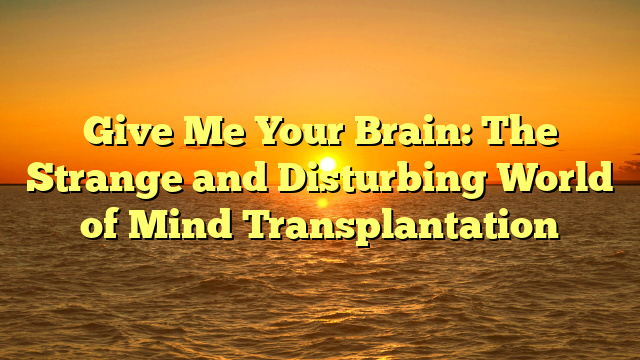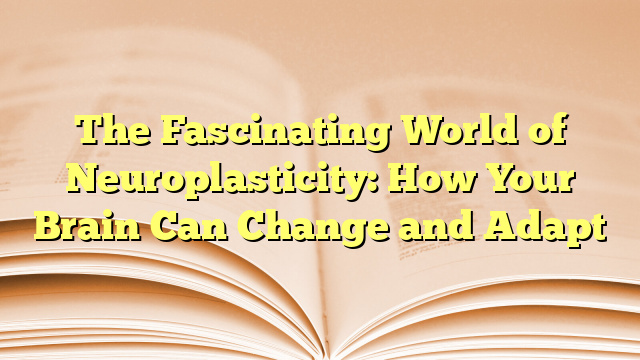Mind transplantation, also known as brain transplant or whole brain transfer, is a concept that has long fascinated scientists, philosophers, and the general public. The idea of transferring one's consciousness or mind from one body to another has been a popular theme in science fiction, but recent developments in neurobiology and technology have brought this once speculative notion closer to reality.
The Science Behind Mind Transplantation
At the core of mind transplantation is the idea that our consciousness, memories, personality, and sense of self are all stored within our brains. By transplanting an entire brain from one body to another, it is theoretically possible to transfer one's mind as well. However, the complexities of the human brain and the ethical implications of such a procedure make mind transplantation a highly controversial and unsettling concept.
Scientists have made significant strides in understanding the brain and how it functions, but the intricacies of consciousness and the nature of the mind are still largely a mystery. While experiments have been conducted on animals, the idea of performing a mind transplantation on a human being raises a host of ethical concerns and questions that have yet to be answered.
The Ethical and Moral Dilemmas
One of the biggest ethical dilemmas surrounding mind transplantation is the issue of identity. If a person were to undergo a mind transplant, would they still be the same person? Would their memories, experiences, and personality remain intact, or would they be fundamentally altered by the transplant? These questions raise serious concerns about personal identity and the nature of the self.
Another major concern is the potential for abuse and exploitation of the technology. The ability to transfer one's mind from one body to another could have profound implications for the future of humanity, including questions of immortality, inequality, and control. The implications of mind transplantation on society as a whole are vast and complex, leading many to argue that the risks far outweigh the benefits.
Conclusion
While mind transplantation remains a fascinating and enigmatic concept, the ethical and moral implications of such a procedure are profound. The idea of transferring one's consciousness from one body to another raises serious questions about personal identity, autonomy, and the nature of the self. As research in neurobiology continues to advance, it is crucial that scientists, policymakers, and the public engage in thoughtful discussions about the implications of mind transplantation and its potential impact on society.
FAQs
What is mind transplantation?
Mind transplantation, also known as brain transplant or whole brain transfer, is the concept of transferring one's consciousness or mind from one body to another by transplanting an entire brain.
Is mind transplantation possible?
While experiments have been conducted on animals, the feasibility and ethical implications of performing mind transplantation on humans remain highly controversial and uncertain.
What are the ethical concerns surrounding mind transplantation?
Some of the ethical concerns include questions of identity, personal autonomy, potential for abuse, and the impact on society as a whole.
Are there any benefits to mind transplantation?
While the potential benefits of mind transplantation are speculative, some have argued that it could lead to advances in medicine, technology, and our understanding of the human brain.
Unlock Your Mental Potential



